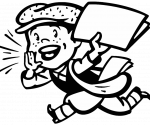Bullying
When asked to write an article on bullying, my heart sank. Having worked to strengthen the mental health of children for almost 40 years, I come up feeling as helpless as others on this subject. My daughter, now an exceptionally strong and independent young woman in her 30s, told me when she was repeatedly a bullying victim in elementary and middle school, “Grownups can’t fix it.” That was disheartening for a mother to hear, especially one whose job it was, as a school counselor, to keep children safe.
Anti-bullying programs abound. Some work, sometimes. Some never work. None work all the time. I have read scores of articles about bullying, attended workshops, and consulted other professionals. Every parent and teacher has said one or more of the following. “Just ignore them, they’re jealous… Stand up for yourself, if they start it, you finish it… Tell your teacher… Go home and tell your parents… I’ll call their mother and talk with her…“
However, the greatest insight I have on this subject comes from my daughter. Before writing this article, she and I discussed her ideas. Instead of repeating what everyone has read about bullying and how to address it, I’m going to share the ideas she so thoughtfully shared.So, educators and parents, listen up—here are suggestions from a bullying victim (and now a social worker who very successfully confronted one of her bullies years after the fact). My daughter says it is all about restorative justice that is adult-monitored and peer-driven. Briefly, that means to create a setting to repair harm, while the offender accepts responsibility for that harm. Then both of the children work toward an acceptable solution.
Here is how a peer-guided program might work. The person bullied drops a note about the incident and names those involved in a secure box by the counselor’s office. With supervision by a trained student mediator (perhaps a high school student) and the counselor, the offender and the child reporting the incident(s) are brought to a conference room. The child experiencing the bullying has already been supported by the mediator and the counselor, and he or she knows this is a safe place.
The students are each given a paper with these questions to discuss:
*What happened?
*What did you do?
“What did the other person do?
*How did you feel?
*What needs to happen to avoid this situation in the future?
Once an offender knows the behavior will not be tolerated, and that adults are aware of the situation and will be checking on whether it continues, a shift in the power difference is created between the children involved. Power is taken from the offender, power is taken by the victim. It also gives the offender the opportunity to develop insight and empathy. My daughter said “Hurt people hurt people.” In other words, the offender may be involved in their own harmful situation that needs the involvement of the counselor and/or may be oblivious to the pain their actions are causing.
We changed the middle school my daughter attended when her situation was not addressed by the faculty. Their solution was for her to ignore cruel and vulgar treatment during her PE class on a daily basis. That changed her life. Several years later, one of those offenders transferred to her high school. My daughter, who was by then stronger and finding her own voice, told this girl how her actions and remarks affected her. The offender had no recollection of any of the events. She cried when she heard how things she didn’t even remember had caused such pain. They became friends and supportive teammates.
If your child is bullied, talk with the school about how it is handled and how the offender will be held responsible and given the opportunity to repair the hurt. All schools address bullying in some way. Make sure your child’s school is committed to supporting the victim and ensuring the offender makes better choices.
And for all parents, discuss with your child how their actions (in person and online) can cause either pain or joy. Tell them you will not tolerate their causing pain to others. And if you learn your child is the offender, ask yourself what is causing them to make such choices.
Hurt people hurt people. The effects of bullying can be very long lasting for everyone involved.
Author
-

Mental Health Matters: The northern Taos County communities have lost several young people in recent months. Questa del Rio News is starting a column dedicated to mental health matters. Dawn Provencher is a retired counselor. She has a master’s degree in counseling and a master’s degree in social work. She will be contributing to this column on a monthly basis.
View all posts


